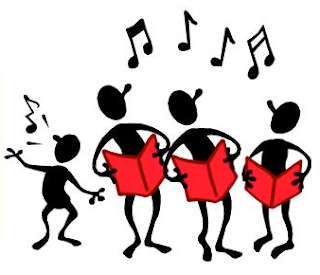TO CHEW ON: (The words of God to Ezekiel...) "'When I say to the wicked, "you shall surely die," and you give him no warning, nor speak to warn the wicked from his wicked way to save his life, that same wicked man shall die in his iniquity; but his blood I will require at your hand.'" Ezekiel 3:18
Ezekiel knew exactly what God was talking about when He said, at the beginning of this encounter, "I have made you a watchman for the house of Israel" (3:17).
Watchtowers, staffed with watchmen, were used in two places. Farmers built them near paddocks and vineyards to be on the lookout for predatory animals and thieves. Watchtowers were also built into city walls. From them watchmen surveyed the surroundings. It was their job to warn the king of any danger in the form of suspicious people, armies, or natural disasters approaching the wall.
But Ezekiel's job was not to be a watchman for a farm or city in Judah or Israel. For this priest of the Zadok family was in exile in Babylon. God was giving him the job of warning the people, his countrymen and fellow exiles, that they were in danger of God's punishment because of their wickedness and backsliding — in plain words, their sin.
I never read this passage without feeling a shiver. For in all the intervening years between saying this to Ezekiel till now, God's stance toward sin hasn't changed. And His way of warning people about their precarious state is still through watchmen and watchwomen. That's you and me.
It doesn't matter that the endangered ones around us don't even acknowledge that God exists, or believe in an objective standard of right and wrong, or sin, or personal culpability. Though it is hard to find the words to warn our neighbours and friends that God will someday judge sin and the people who commit it, God's words to Ezekiel if he doesn't caution them echo down to us: "...his blood I will require at your hand."
MORE: Warning words template
In a 1998 sermon titled "The Final Divide: Eternal Life or Eternal Wrath, Part 1" John Piper gave a passionate plea to all age groups to pay attention to their eternal fate. Perhaps his words could be a template of how we might address our families, friends and neighbours:
"So, whatever else you see here (the text was Romans 2:6-10), please don't miss this. What could be more important or more relevant or more urgent or more immense or more captivating than your happiness or misery for all eternity?
Children, this is very important for you. Someday you are going to die. I hope it will be when you are very old and full of years. But you might be six or sixteen when you die. And when you die, you will either enter eternal life with God or go away under his eternal anger and misery forever. You don't have to be afraid about this. God has given his Son, Jesus, to die for sinners so that everyone who trusts in him will not go to hell, but have eternal life (John 3:16). But you do need to care about this. So listen carefully today and ask your daddy or mommy to help you be sure that you will go to heaven and not to hell.
And teenagers, be wise and set your minds to think about what really matters in this world. Don't be foolish and give your best energies to things that last a moment and then are gone. Don't think that you will live a long time and deal with heaven and hell when you are old. Every day the news carries stories about teenagers dying suddenly. And if you put it off, what you may find is that your heart is so infused with the mindset of this world that you are no longer able to feel a serious spiritual affection. O how many times I heard my father say the ominous words of Ecclesiastes 12:1, "Remember also your Creator in the days of your youth, before the evil days come, and the years draw nigh, when you will say, 'I have no pleasure in them.'" Few things are more to be feared than a godless, miserable old age unable to delight in heaven or fear hell. Do not presume that you will get serious about eternity when you are old. Do it now.
And all you married couples and single people in the prime of your life, beware of being swept into the all-consuming demands of your careers only to find yourselves gasping for some fun and entertainment on the weekend, finding your relief from worldly work in worldly fun. And waking - perhaps - someday to realize you have no taste for things of God. You have become a connoisseur of restaurants, and videos, and movies, and sports, and stocks, and computers, and a hundred transient things. And all the while, your sense of heaven and of hell has died. Wake up before it is too late. And tremble at these things today. And set your minds to think about the biggest issues in the universe: eternal life or wrath.
And all you older saints (or maybe some who are not saved), don't hide from this fast-approaching, all-important question of where, in just a few short years or months, your soul will be. O may God give you grace to think of it and know that you are ready, with the righteousness of Christ, to enter into life and not to fall into the hands of omnipotent wrath.
Read entire...
By John Piper. © Desiring God. Website: desiringGod.org
Do your 8-12-year-olds have daily devotions? Point them to Bible Drive-Thru.
















